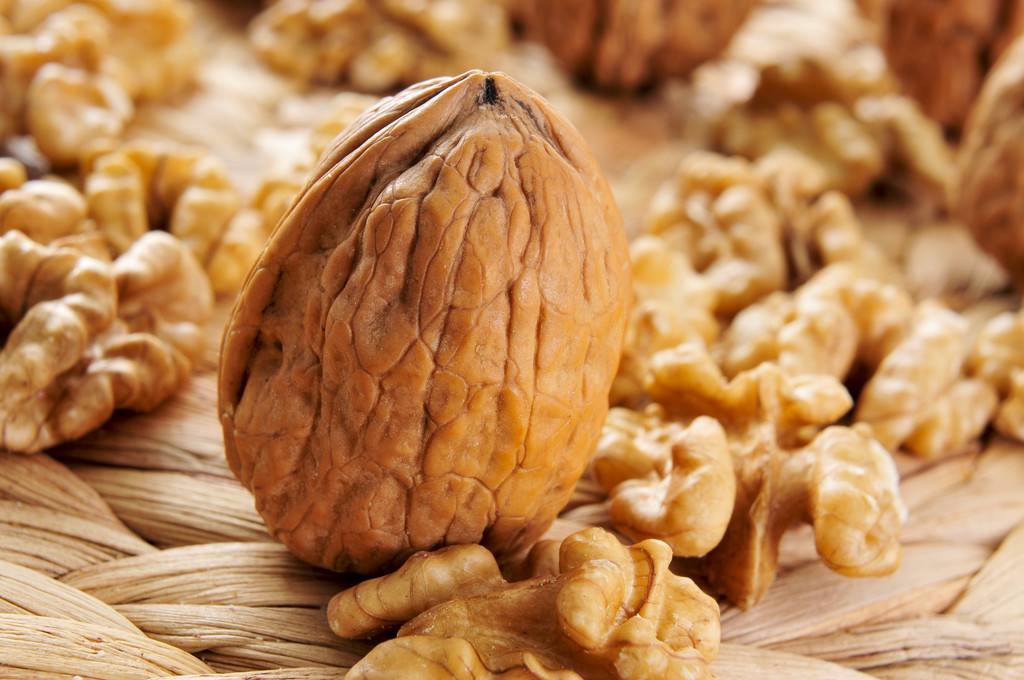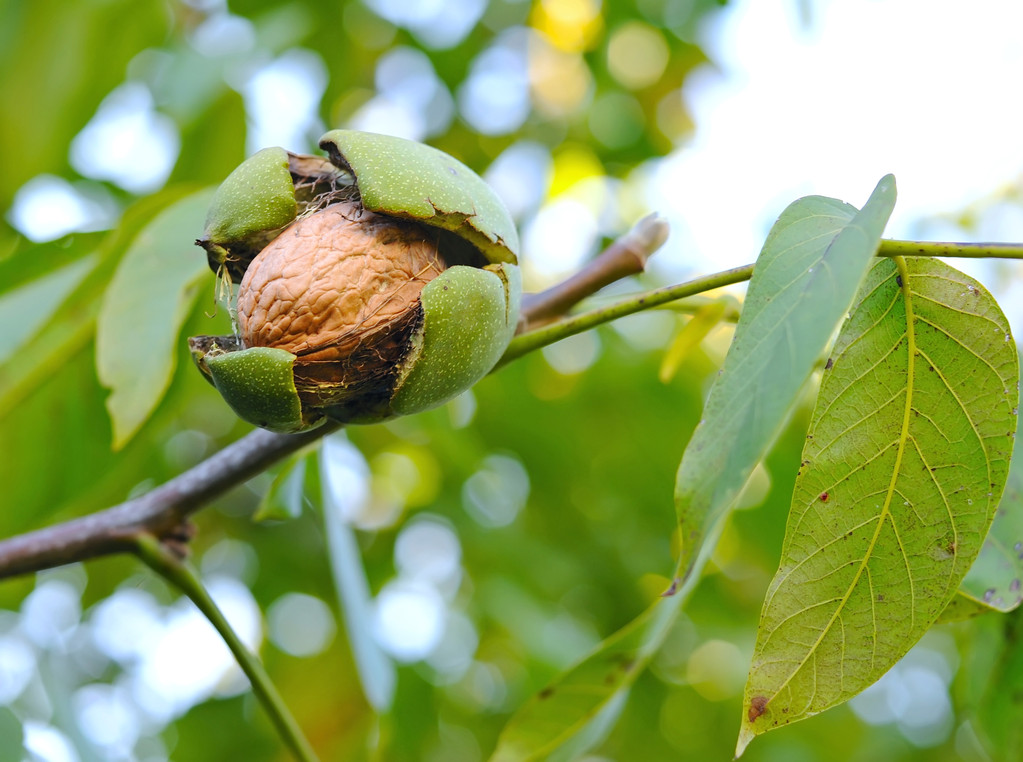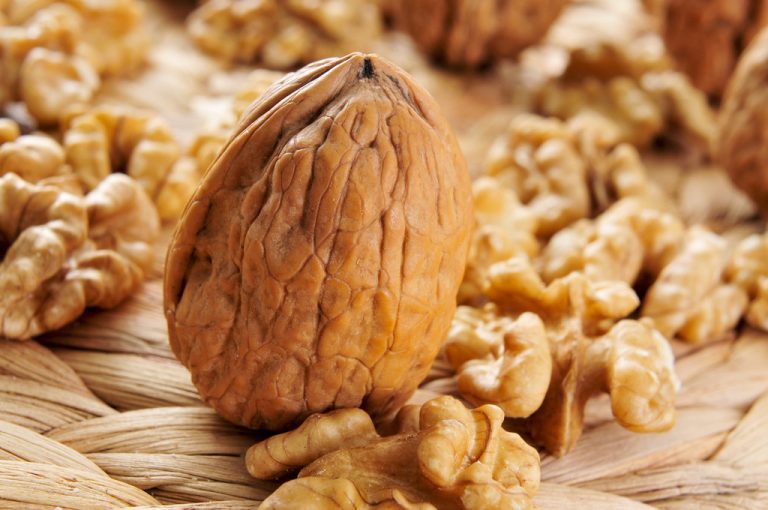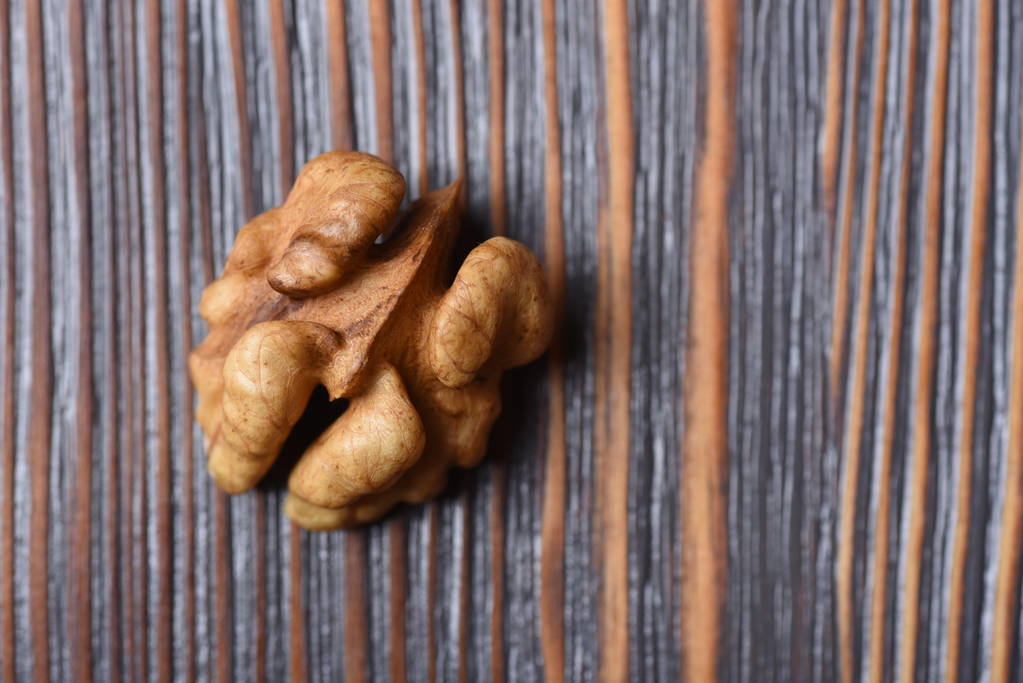Walnut oil can be used not only in the kitchen, but also in cosmetics. Here we will tell you how it works and how to use it correctly.

Walnut oil: high-quality and versatile
Walnut oil is considered to be a particularly high-quality, noble oil and is characterized by its light yellow color and comparatively thin consistency. Because of its tart, nutty taste, it is particularly popular in French cuisine, but it can also be used as a natural cosmetic product.
Effect of walnut oil
Because of their high fat content of up to 62%, walnuts are ideal for producing oil. Walnuts contain “good fats” – more precisely, above all omega-3 fatty acids, which belong to the unsaturated fatty acids.
These fatty acids are essential, meaning they cannot be produced by the human body itself. As a rule, they are ingested through the consumption of fish – vegetarians or vegans in particular take plant-based alternatives. Walnut oil is ideal here, because walnuts have the highest proportion of linolenic acid, a special omega-3 fatty acid, of all nuts.
The omega-3 fatty acids promote blood circulation, so they can, for example, prevent thrombosis, support blood flow and help lower cholesterol levels.
Walnuts are also particularly rich in vitamin E, which protects the body’s cells and stimulates fat metabolism. Walnut oil can also help to reduce blood lipid levels.
Walnut oil also contains biotin or vitamin B7, which the body needs to form keratin: It supports the healthy growth of skin, hair and nails.
In smaller amounts, walnut oil also contains zinc, which is also important for skin and hair, and potassium, which is particularly important for the functionality of the heart muscle.
The ratio of the various fatty acids in walnut oil is much more favorable in terms of their positive effects on the body than in olive or sunflower oil. Due to the balanced combination of unsaturated fatty acids, vitamins and trace elements, walnut oil is a real miracle cure for preventing the formation of vascular deposits and thus cardiovascular diseases.
How to use walnut oil
You can use walnut oil as a classic cooking oil or as a cosmetic product.
However, since it does not heat up particularly well, you should not use the oil for frying or deep-frying. It is more suitable for cold dishes: the strong, nutty taste goes particularly well with lamb’s lettuce or to refine creamy soups.
You can also use the oil on the skin: it absorbs quickly and can make dry, cracked skin supple again. Besides, applying walnut oil to the skin is also said to prevent wrinkles.
Walnut oil is also used in hair care: If you also use some walnut oil in your usual hair wash, it makes your hair look soft and shiny.
Important: Walnut oil is available both cold-pressed and hot-pressed. The cold-pressed oil was not heated during production, which is why the healthy ingredients and the intense aroma are preserved – so if you are looking for these benefits, you should choose the cold-pressed variant.
Buy walnut oil as regionally and ecologically as possible
Although walnuts can also be grown in this country, the nuts that can be bought here are almost exclusively imported goods. Most walnuts are imported from the US, where they’re grown in drought-stricken California, of all places – which is anything but environmentally friendly.
When buying walnut oil in particular, it is therefore advisable to take a closer look and choose a product that has been produced ecologically on the one hand and in Europe on the other: France, for example, is a popular growing region for walnuts.



